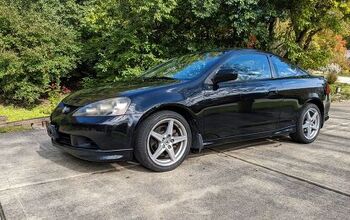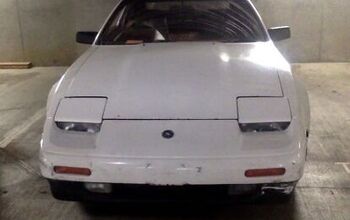European Raids Expand to Daimler and VW in Automotive Cartel Probe

Following an earlier raid at BMW, Daimler AG and Volkswagen Group were also searched by antitrust officials from the European Union Commission and German government this week. Despite claiming whistleblower status, Daimler is still subject to investigation — though it’s less likely to incur the same financial penalties if the collusion charges go to court.
Over the summer, investigators from the EU stated there would be an investigation into several German carmakers after allegations surfaced that companies conspired to fix prices on various automotive technologies over several decades. But it wasn’t until Monday that officials searched Daimler’s corporate offices and collected documents from Volkswagen’s headquarters in Wolfsburg and at Audi’s home base in Ingolstadt.
The EU Commission has continued to deny the release of specific details on its investigation, only saying it has “concerns that several German car manufacturers may have violated EU antitrust rules prohibiting cartels and restrictive business practices,” according to reports from Reuters. However, spokespeople from both Daimler and Volkswagen have confirmed the searches.
Potential examples of collusion include BMW, Volkswagen Group, and Mercedes-Benz purchasing the digital mapping company HERE and a joint venture to invest in thousands of charging sites across Europe to boost public acceptance of electric cars. Ford Motor Company is also a participant in the the charging network plan.
Distinguishing the difference between reasonable corporate cooperation and activities that violate antitrust laws will be the cornerstone of the European investigation. As of now, no company has been formally charged with any wrongdoing. However, if any are eventually found guilty of breaching EU guidelines, the automakers could face fines equalling 10 percent of their global revenue.

A staunch consumer advocate tracking industry trends and regulation. Before joining TTAC, Matt spent a decade working for marketing and research firms based in NYC. Clients included several of the world’s largest automakers, global tire brands, and aftermarket part suppliers. Dissatisfied with the corporate world and resentful of having to wear suits everyday, he pivoted to writing about cars. Since then, that man has become an ardent supporter of the right-to-repair movement, been interviewed on the auto industry by national radio broadcasts, driven more rental cars than anyone ever should, participated in amateur rallying events, and received the requisite minimum training as sanctioned by the SCCA. Handy with a wrench, Matt grew up surrounded by Detroit auto workers and managed to get a pizza delivery job before he was legally eligible. He later found himself driving box trucks through Manhattan, guaranteeing future sympathy for actual truckers. He continues to conduct research pertaining to the automotive sector as an independent contractor and has since moved back to his native Michigan, closer to where the cars are born. A contrarian, Matt claims to prefer understeer — stating that front and all-wheel drive vehicles cater best to his driving style.
More by Matt Posky
Latest Car Reviews
Read moreLatest Product Reviews
Read moreRecent Comments
- SCE to AUX Range only matters if you need more of it - just like towing capacity in trucks.I have a short-range EV and still manage to put 1000 miles/month on it, because the car is perfectly suited to my use case.There is no such thing as one-size-fits all with vehicles.
- Doug brockman There will be many many people living in apartments without dedicated charging facilities in future who will need personal vehicles to get to work and school and for whom mass transit will be an annoying inconvenience
- Jeff Self driving cars are not ready for prime time.
- Lichtronamo Watch as the non-us based automakers shift more production to Mexico in the future.
- 28-Cars-Later " Electrek recently dug around in Tesla’s online parts catalog and found that the windshield costs a whopping $1,900 to replace.To be fair, that’s around what a Mercedes S-Class or Rivian windshield costs, but the Tesla’s glass is unique because of its shape. It’s also worth noting that most insurance plans have glass replacement options that can make the repair a low- or zero-cost issue. "Now I understand why my insurance is so high despite no claims for years and about 7,500 annual miles between three cars.


































Comments
Join the conversation
Same story, different country. No different than the US automakers of the past, where one of the Big 3 would announce prices first, followed by the second and third a week or two staggered after that, all coincidentally within a few % of each other, but of course higher than the year before. Wink wink!
It is sad, but I fear it they have done it. I'm looking forward to follow the development of the case...